An epic spanning 3.5 hours and covering over a century of events, “The Lehman Trilogy” follows the build and collapse of Lehman Brothers, a family and a financial company that changed the world.
The play, written by Stefano Massini and adapted by Ben Power, was performed at the Huntington Theatre in Boston from June 13 to July 23.
Directed by Carey Perloff, three actors play more than 50 roles, from the original Lehman brothers – Jewish immigrants from Bavaria – to their descendants.
Steven Skybell, Joshua David Robinson, and Firdous Bamji shine in their roles as Henry Lehman, Emanuel Lehman, and Mayer Lehman, respectively. Skybell brings the most energy and expertise to the stage, but Robinson is full of charisma and Bamji stars in sequences where he switches between characters on a dime.
However, it was the performance of Joe LaRocca – who played clarinet, flute, and saxophone throughout the show – that stood out the most. LaRocca evoked emotion and changed the mood of the scene with his magnificent stage presence – not distracting, but not easily ignored.
Beautiful costume design by Dede Ayite helps place the Lehman’s firmly in their world. Whether in the 1840s or early 2000s, they wear simple and professional suits with coats throughout the show.
Even when the original Lehman brothers are gone, the actors do not change their costumes, helping remind the audience that despite the growing wealth of the Lehman descendants, they still come from humble beginnings. Likewise, embroidered cotton on the backs of the Lehman’s coat serves as a reminder that the Lehman family, who originally sold fabrics and cotton, profited from slavery.
An ingenious set design of simple packing crates by Sara Brown, together with lighting by Robert Wierzel and projections by Jeanette Oi-Suk Yew, provides a playground for the actors and a way for the audience to follow along as the play shifts locations.
The set’s dynamicity serves the production well by allowing for interpretation. In the first act, the set is sparse, depicting the simple store the Lehmans owned in Alabama. However, as the play progresses, more crates pile onto the stage – serving not only as a reminder that the Lehmans have moved to New York, but that their fortune, like the height of the crates, is growing.
At the peak of the show, the once-simple packing crates of the brothers’ past illuminate in flashing colors as the Lehmans feel on top of the world. But something’s bound to give, and when the Lehman empire collapses, so too does everything they’ve built, leaving a stage sparer than the one they began with.
Despite its length, “The Lehman Trilogy” never drags. In fact, it’s when it goes fastest it begins to fail. A rushed third act catalogs the fall of the corporation, and the performance begins to feel like actors just rattling off a list of facts to tie up the story. After a slow build up to what should be a thrilling climax, one is left wondering if that’s really it.
(The Lehman Trilogy will be playing at The Huntington from June 13 until July 23. For information on all performances at Huntington Theatre, go to its website HERE.)
–July 22, 2023–

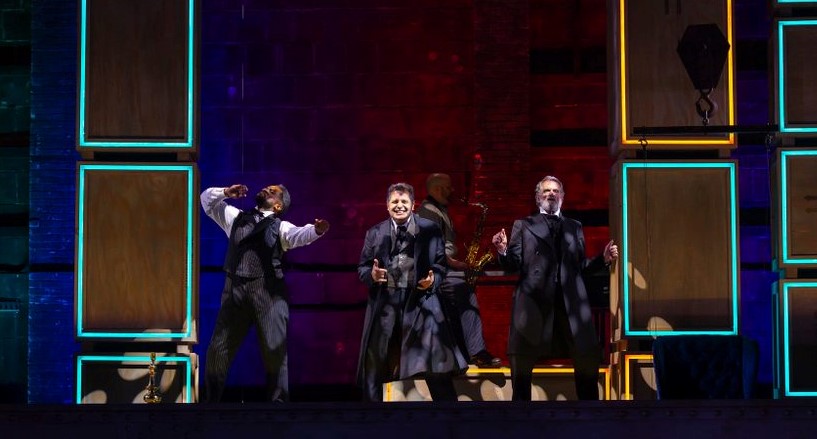

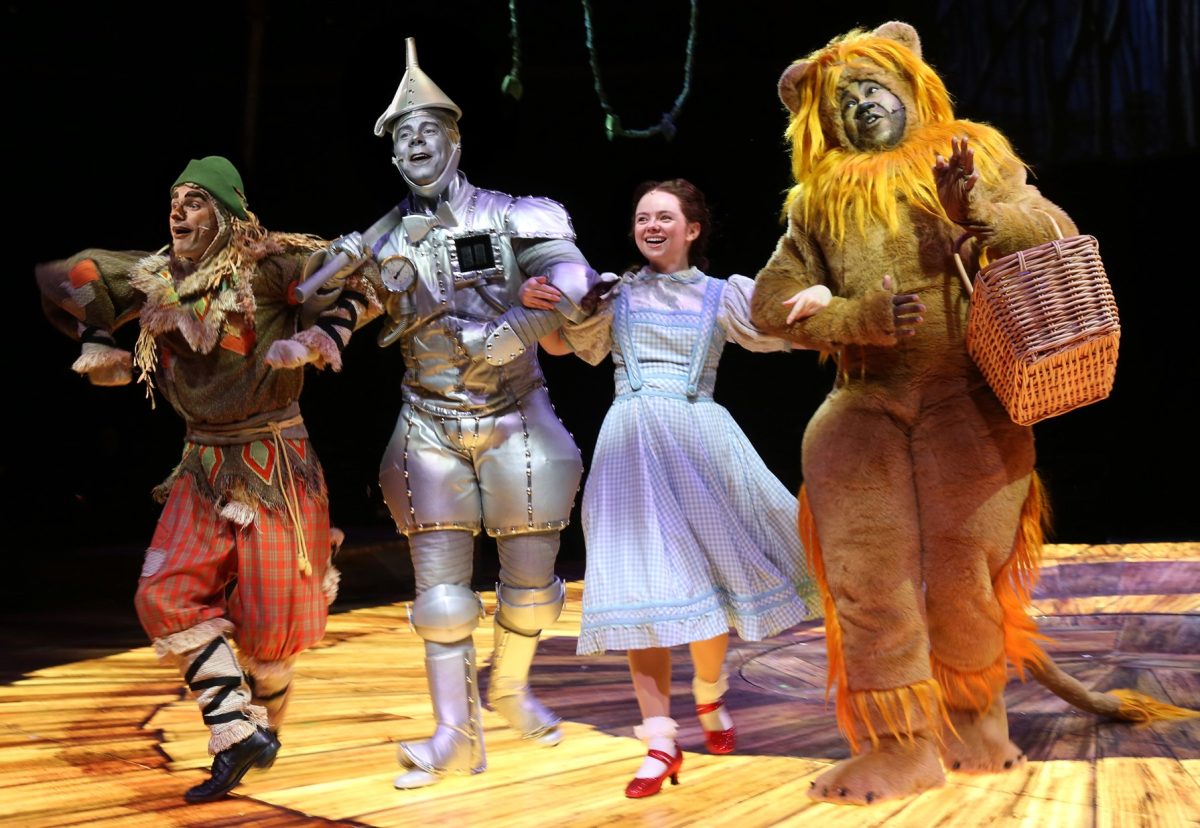
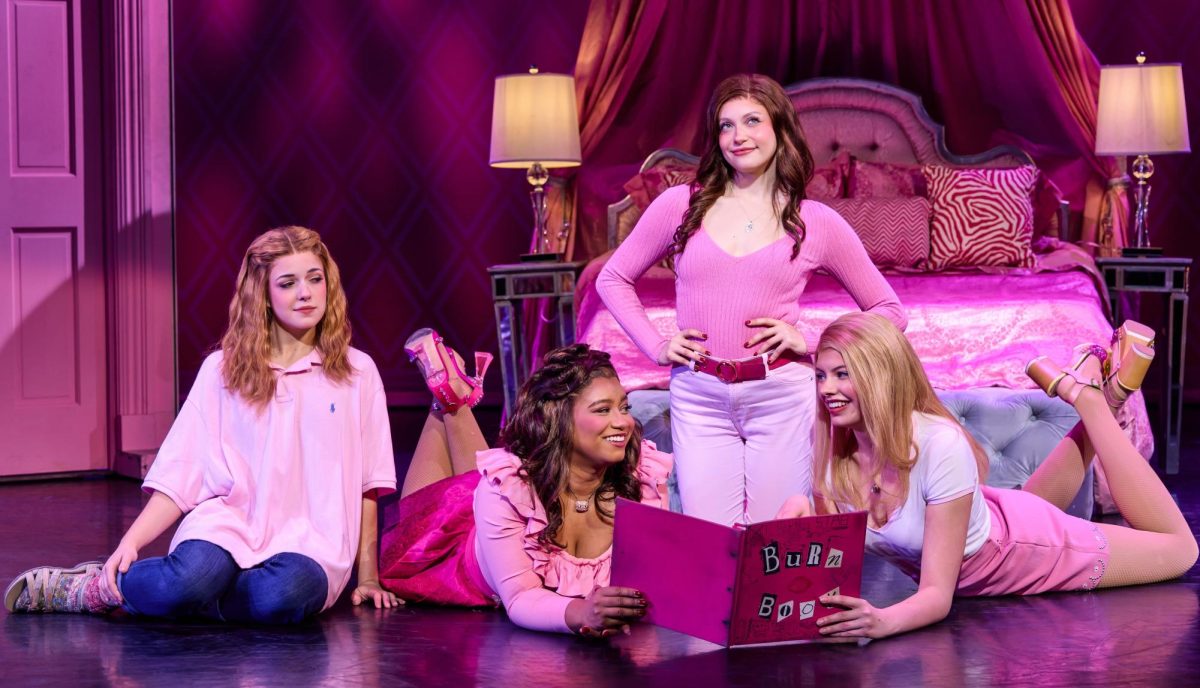

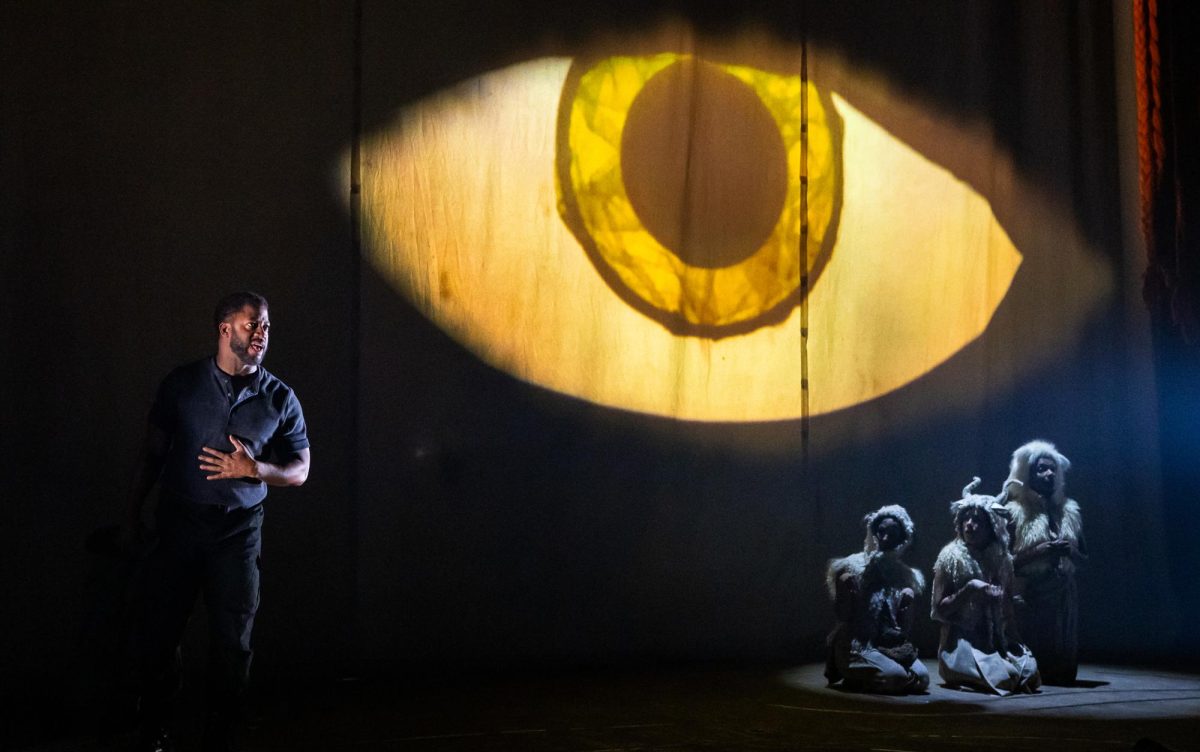
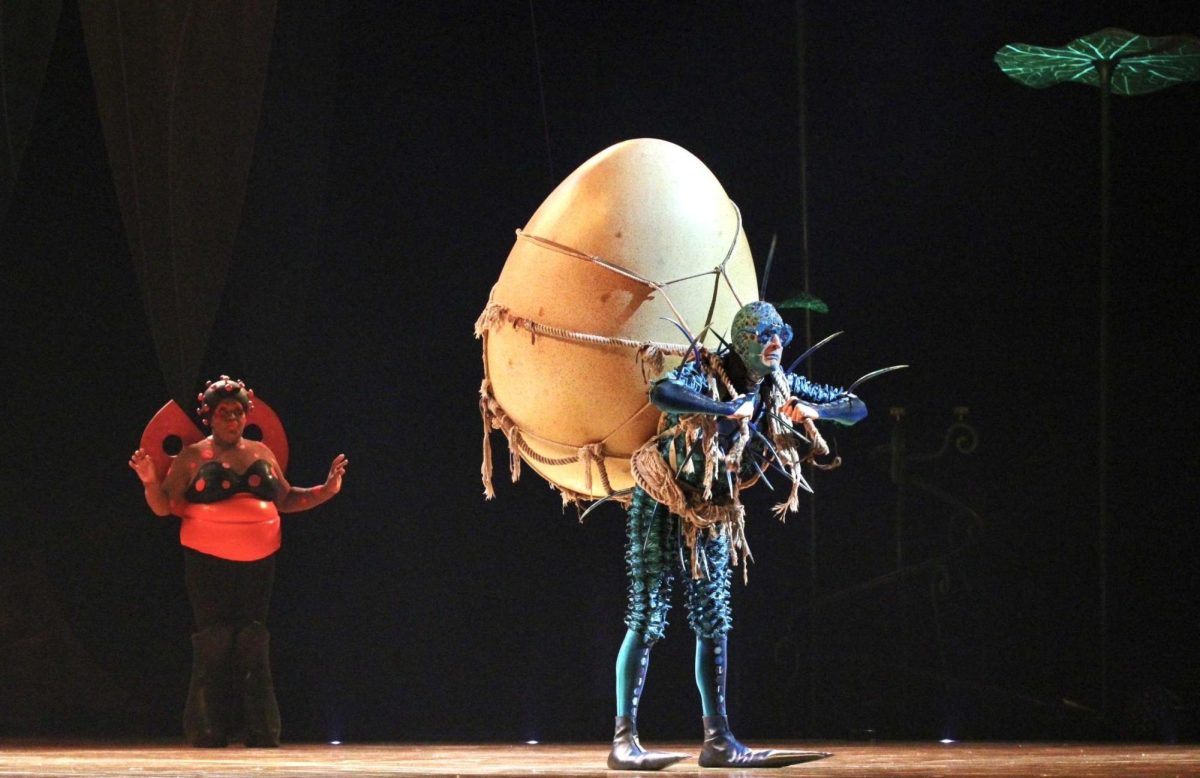

Joe LaRocca • Sep 20, 2023 at 6:36 pm
Full disclosure, I was the musician in the cast, but this is the most thoughtful and well written review I’ve seen, and that includes the Globe.
I feel like so many reviewers just copy and paste the same format, and often come in with 80 percent of what they want to write already decided. You, however, actually watched the show and gave a very well informed opinion.
Keep thinking outside of the box!